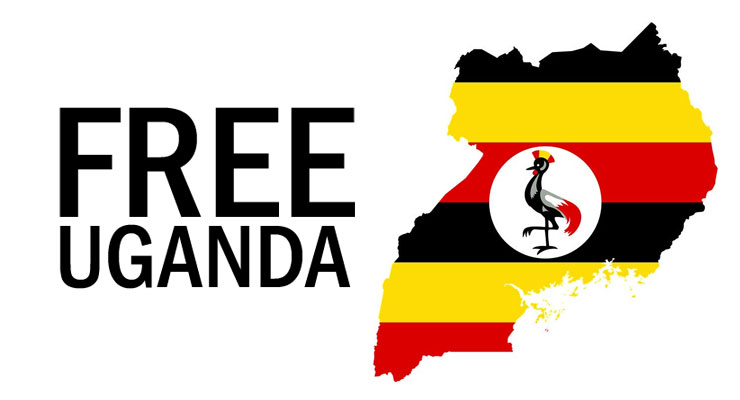
Protests have rocked Uganda since last year, when the government amended the constitution to abolish presidential age limits, allowing President Yoweri Museveni to stay in power indefinitely.
Opposition leaders who tried, but failed, to stop the amendments have encouraged the demonstrations. “That’s why you’ve been seeing the wave of protests in all communities,” said Kharim Ntambi, a Ugandan who lives in the U.S. state of Maryland.
Last week, those protests spilled onto the sidelines of the United Nations General Assembly in New York. More than 100 people joined the demonstration, which Ntambi organized, to demand an end to Museveni’s rule, which they characterize as brutal.
“We wanted to denounce the routine police brutality and extrajudicial killings that have been happening for the last 32 years,” Ntambi said. “We also wanted to demand that the government should stop criminalizing dissenting views.”
Nantume Kabanda and Robert Mulerwa grew up in Uganda and attended the rally in New York. They’re calling on the international community to end its support of a government they say oppresses its people.
Kabanda and Mulerwa want new opportunities for Ugandans, but they especially want Museveni to step aside.
“It’s been 32 years. Everything comes to an end, and everything grows old,” Kabanda, who was raised near the Ugandan capital, Kampala, told VOA at the protest in New York.
”The country is basically numb because of one person, the president, who needs to leave and give people their freedom,“ she added.
Hope for Bobi Wine
Several people at the protest held signs in support of Bobi Wine, a parliamentarian and former singer who has emerged as a vocal critic of the president and a symbol of resistance.
In August, Wine’s driver was shot dead and the lawmaker was beaten and tortured after someone allegedly threw stones at Museveni’s motorcade. Wine believes government forces are responsible.
Wine came to the United States for medical treatment after the incident. In an interview with National Public Radio, Wine, whose given name is Robert Kyagulanyi Ssentamu, called on the United States to stop providing military assistance and arms to Uganda.
The United States provides Uganda with more than $970 million a year in assistance, according to the U.S. State Department, with the bulk of financial support aimed at security.
There has been no change in U.S. support to Uganda. The Ugandan government is a U.S. ally on regional security, contributing troops to AMISOM, the African Union mission that supports the federal government in Somalia.
Wine is now back in Uganda, facing treason charges along with four other opposition lawmakers.
Youth support
Wine, 36, is less than half as old as the 74-year-old president. Museveni is one of Africa’s oldest and longest-serving leaders, and is now eligible to run for another term in 2021, and beyond.
Wine’s support comes mostly from Uganda’s younger population. Kabanda sees an age gap at work— those in office are much older than the general population and it’s no coincidence that a large number of young people have no jobs.
By silencing people and limiting their options, the government maintains its power, she added. “It’s basically enslavement in our own country, Uganda.”
“Ugandans are suffering at the expense of one person who has kind of taken over the country,” Mulerwa told VOA. Mulerwa said he hoped the protest and others like it would “foster some action that will propel democracy in Uganda.”
Leave a Reply